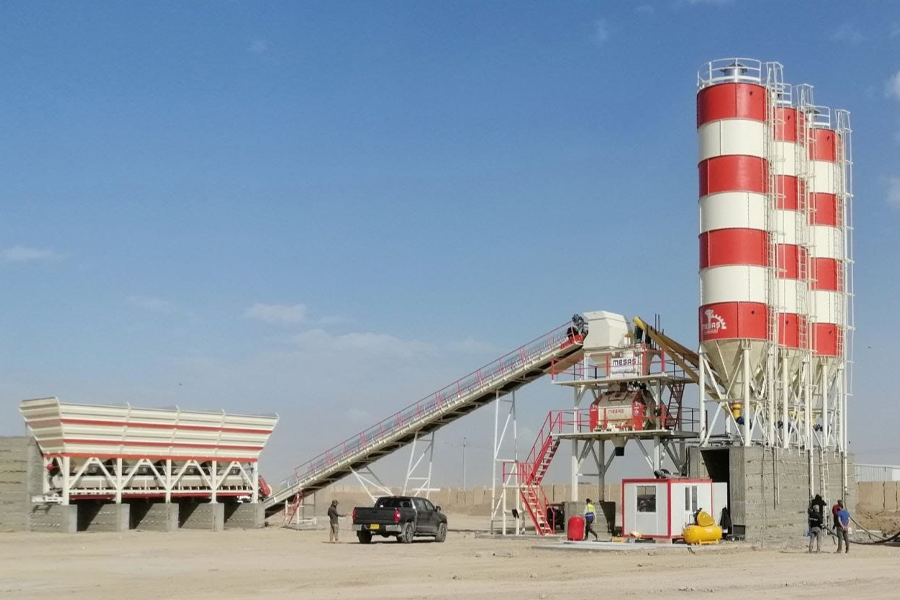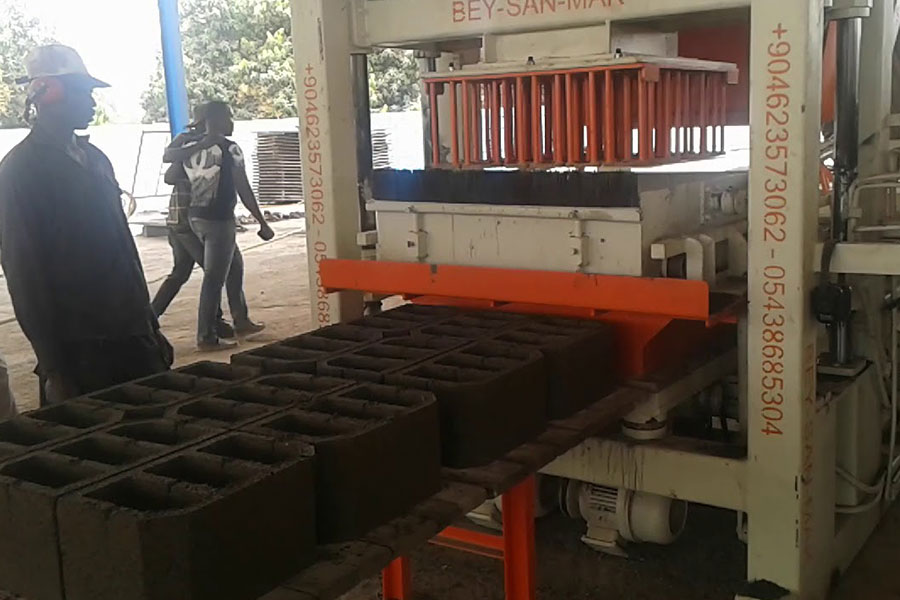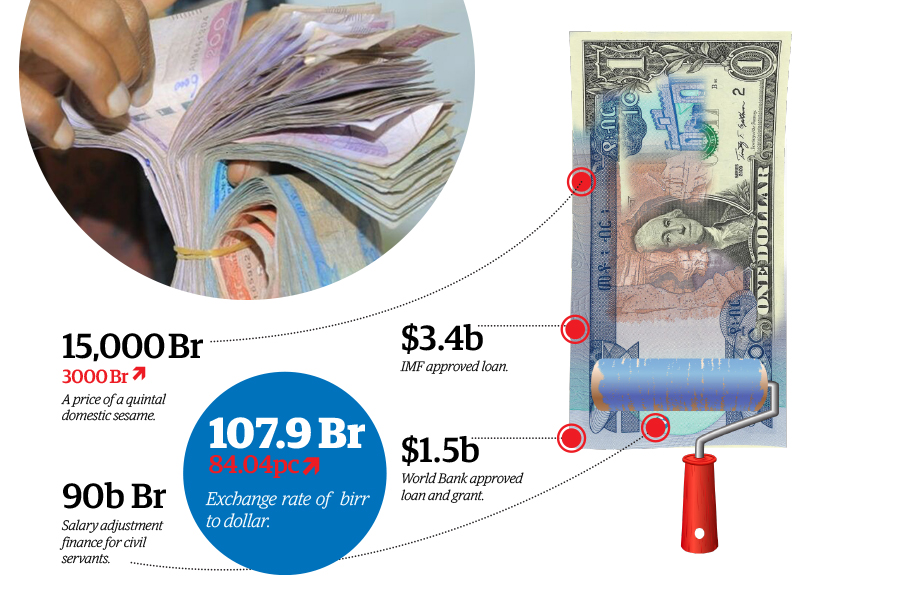
Fortune News | Aug 28,2021
About 1.4 million jobs in the manufacturing, construction and services sectors will be threatened by the economic impact of the Novel Coronavirus (COVID-19), according to a preliminary assessment done by the Jobs Creation Commission.
The effects of the virus are expected to heavily impact the manufacturing and construction sectors and the COVID-19 Economic Response Plan crafted by the Commission suggests the possibility that over 552,000 jobs on average will be lost within three months.
The highest drop in demand is expected to be in the textile, apparel and leather sectors, as well as a 50pc drop in construction. Asia and Europe, which have been hit heavily by the virus, account for 80pc of Ethiopia’s revenue from exports. China, the country’s major trading partner, is showing signs of recovery, but it will take time to get back on track.
The Plan further elaborates that construction workers, daily labourers and temporary workers will be impacted with an average estimate of 741,000 jobs threatened over the next three months.
The highest drop in demand is expected to be in the textile, apparel and leather sectors, as well as a 50pc drop in construction.
Shifts in local demand for the service industry will receive the major impact of the virus, according to the report. The effect of the virus on tourism, transport, wholesale, retail and personal services could affect more than 1.9 million people who are self-employed.
Tourism-linked activities, specifically, could see a drop of up to 80pc in demand. Coupled with the fact that most self-employed people will not have any financial support to fall back on, this could send them under the poverty line within the next few months.
The response plan recommends the expansion of the Productive Safety Net Programme and providing direct cash injections to the beneficiaries. This would require an estimated 134 million dollars on average over the next three months to support vulnerable households.
Close to 1.3 million people are currently beneficiaries under the Productive Safety Net Programme, according to Dereje Taye, public relations and communications director at the Ministry of Labor & Social Affairs.
More than 70pc of urban employment operates under the service sector and 1.9 million of these are self-employed people earning subsistence-level income. The Plan estimates there may be an income loss for this population amounting to 265 million dollars. It further recommends taking swift action as this economic crisis could expose the country to social chaos.
The economic effects have already been heavy on Ethiopian Airlines, which has lost over 550 million dollars in revenue since January. Ethiopian accounts for five percent of the country's GDP and has 3,000 temporary employees whose jobs are threatened if the current decline in demand continues.
If there is a disruption in the distribution and import of materials like fertilizer during the planting season, the Plan anticipates an income shock in the agricultural sector that may result in a loss of 838 million dollars from across 15 million farm households in the nation.
It also recommends multiple strategies targeted at alleviating the impact on individuals and businesses. Direct cash injections through the Safety Net Programme, paid leave and relieving income tax for the next three months for households to have an easier time to recover are some of the proposed strategies.
While expediting VAT reimbursement and debt postponement is recommended for large firms, wage subsidies, coverage of shed space and covering utility costs and technical support are postulated for medium, small & micro enterprises. Repurposing the production of firms toward needed goods like masks, supporting innovation in different sectors and importing fertilizer for ensuring food security is also included in the recommendations.
Individuals involved in the informal economy are the ones most in need of support at this time. Most live on daily income and even a day’s gap in income could mean they will go hungry, according to Tsegaye Gebrekidan (PhD), an economist at the Policy Studies Institute.
“Tracking the people in the informal sector is extremely hard, and cash injections are good only for a short period of time as the amount of population in that sector is very high," he said. "So while giving the necessary support, taking precautionary measures and continuing activities under a partial lockdown are the way to go. Complete lockdown will not be feasible."
PUBLISHED ON
Apr 17,2020 [ VOL
21 , NO
1042]

Fortune News | Aug 28,2021

Editorial | Oct 18,2025

Radar | Nov 03,2024

Fortune News | May 31,2020

Radar | Mar 16,2019

Fortune News | Oct 01,2022

Fortune News | Apr 30,2022

Fortune News | Aug 04,2024

Fortune News | Aug 03,2019

Radar | Mar 23,2019

Dec 22 , 2024 . By TIZITA SHEWAFERAW
Charged with transforming colossal state-owned enterprises into modern and competitiv...

Aug 18 , 2024 . By AKSAH ITALO
Although predictable Yonas Zerihun's job in the ride-hailing service is not immune to...

Jul 28 , 2024 . By TIZITA SHEWAFERAW
Unhabitual, perhaps too many, Samuel Gebreyohannes, 38, used to occasionally enjoy a couple of beers at breakfast. However, he recently swit...

Jul 13 , 2024 . By AKSAH ITALO
Investors who rely on tractors, trucks, and field vehicles for commuting, transporting commodities, and f...

Oct 25 , 2025
The regulatory machinery is on overdrive. In only two years, no fewer than 35 new pro...

Oct 18 , 2025
The political establishment, notably the ruling party and its top brass, has become p...

Oct 11 , 2025
Ladislas Farago, a roving Associated Press (AP) correspondent, arrived in Ethiopia in...

Oct 4 , 2025
Eyob Tekalegn (PhD) had been in the Governor's chair for only weeks when, on Septembe...